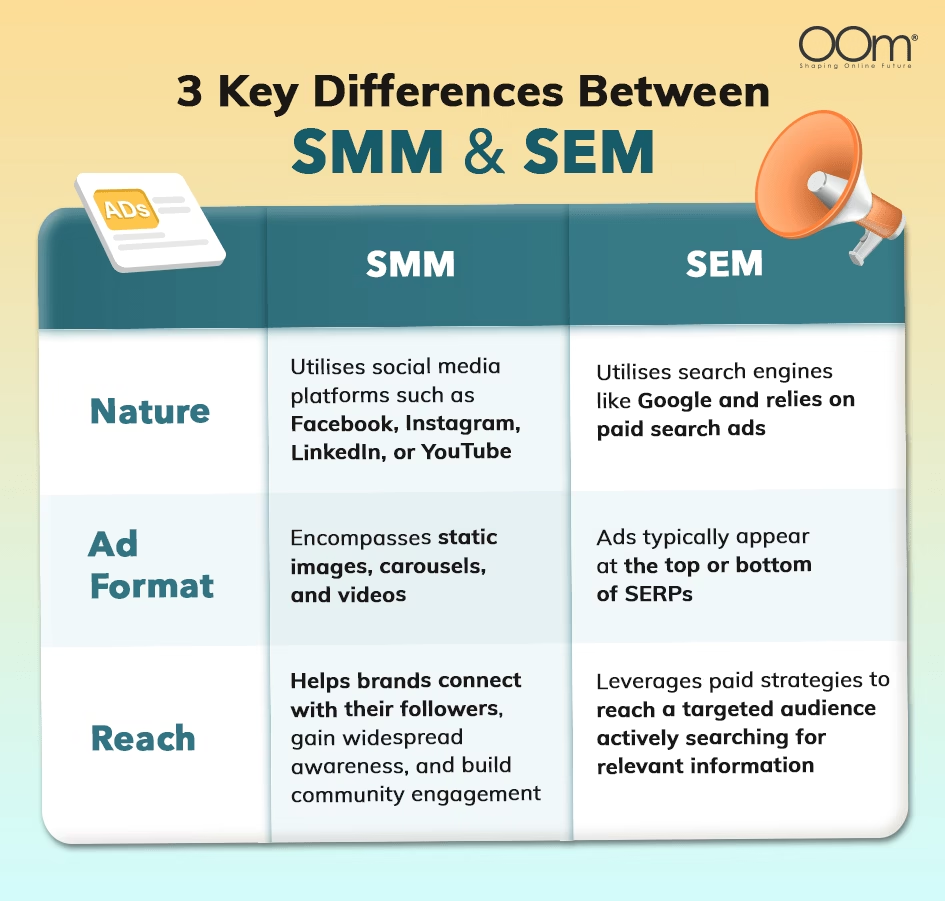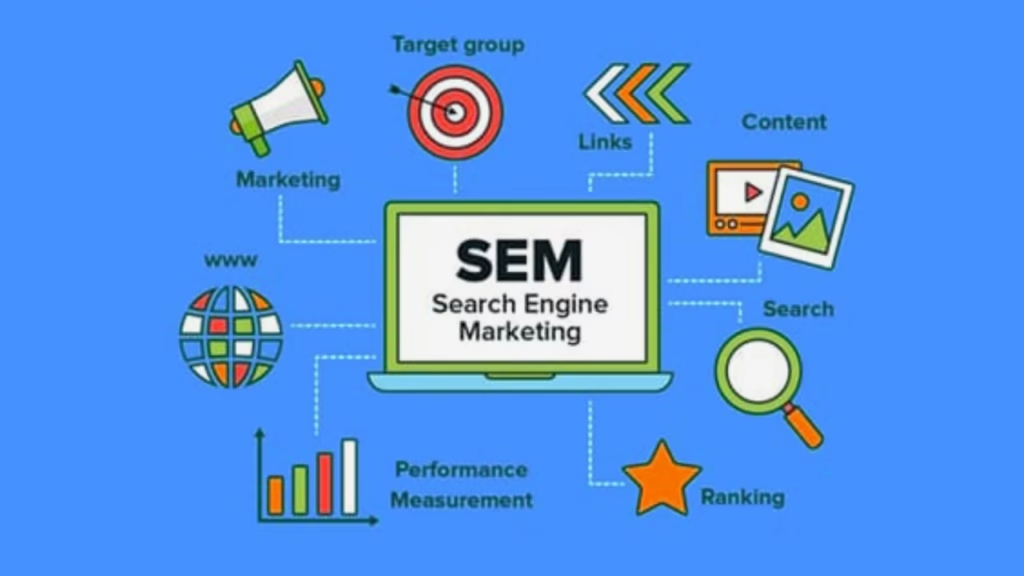SEM (Search Engine Marketing) and SMM (Social Media Marketing) are both digital marketing strategies that attract customers through different channels. SEM uses search engines to drive traffic to a website, while SMM uses social media platforms to engage with users.

Source: OOm Singapore
What is SEM (Search Engine Marketing)?
Search Engine Marketing (SEM) is a digital marketing strategy used to promote websites by increasing their visibility on search engine results pages (SERPs) through paid advertising. It involves targeting users who are actively searching for products, services, or information related to your business.

Source: LinkedIn
Benefits of Search Engine Marketing (SEM)?
Search Engine Marketing (SEM) is a powerful way to grow your business online by driving traffic, generating leads, and increasing sales. Here are the key benefits of SEM:
1.Instant Result
Unlike SEO, which can take months to show results, SEM delivers immediate visibility and traffic, making it ideal for time-sensitive campaigns.
2.Precise Targeting
Allows businesses to target audiences based on keywords, location, demographics, device, and more, ensuring ads reach the most relevant users.
3.Enhanced Brand Awareness
By appearing at the top of search engine results, SEM improves brand visibility, even for users who don’t click on the ads.
4. Increased Website Traffic
SEM drives highly targeted traffic to your website, as ads are shown to users actively searching for related products or services.
5. Cost Efficiency
The Pay-Per-Click (PPC) model ensures you only pay for actual clicks, making SEM a cost-effective option with a measurable return on investment (ROI).
6. Measurable Performance
Track and analyze campaign performance in real-time using platforms like Google Ads or Bing Ads. Key metrics include impressions, clicks, click-through rate (CTR), and conversions.
7. Supports Business Growth
SEM campaigns can generate leads and drive sales, contributing directly to revenue growth and helping businesses expand their online presence
8. Adaptability and Flexibility
Campaigns can be adjusted in real-time based on performance, allowing for optimization of budget, targeting, and messaging.
9. Local and Global Reach
Perfect for targeting specific geographic areas or expanding your reach to a global audience, depending on your business needs.
10. Competitive Advantage
Helps smaller businesses compete with larger competitors by ensuring visibility in search results for targeted keywords.
11. Supports Multichannel Strategies
SEM complements other digital marketing strategies like SEO, social media marketing, and email campaigns, creating a cohesive marketing mix.
12. Remarketing Capabilities
Re-engage visitors who didn’t convert during their first visit with remarketing ads, increasing the chances of conversion.
13. Increased Conversion Rates
Targets users with high purchase intent, making it more likely they will take desired actions, such as making a purchase or filling out a form.